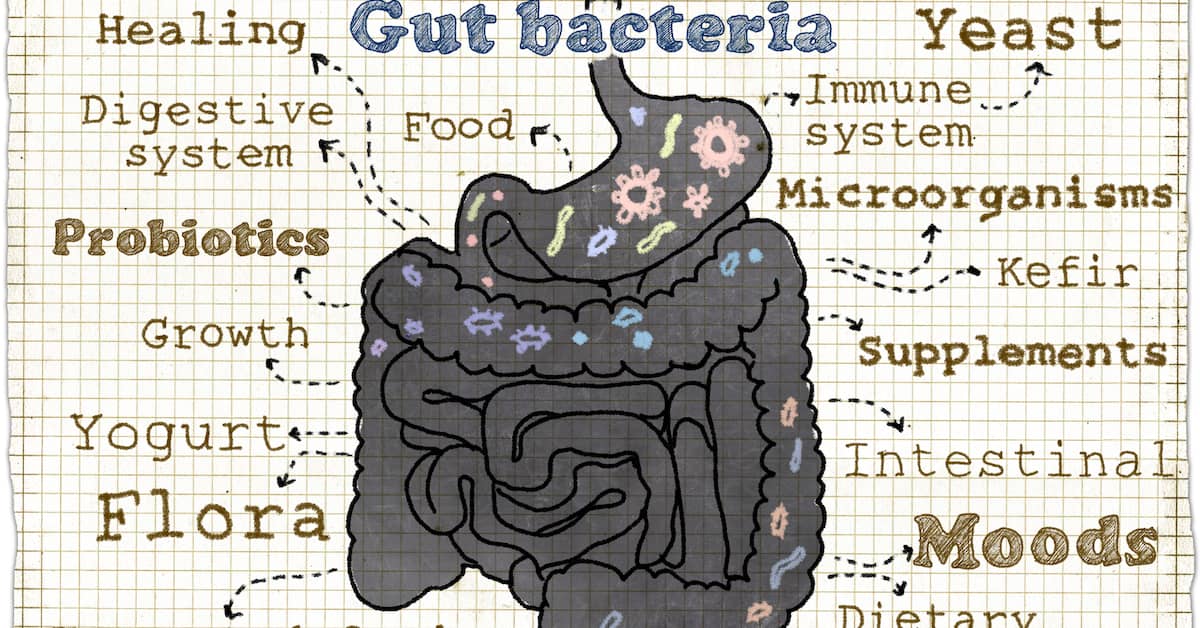
Did you know that the secret to a sharper memory and a lower risk of dementia could lie in your gut? Groundbreaking research reveals how what you eat and do might influence the tiny, unseen world of microbes inside you—transforming your digestion and brain health, too. The latest findings might make you rethink your plate and workout routine. Are you ready to uncover this fascinating connection?
Key Takeaways
-
A balanced gut microbiome is essential for cognitive health, and imbalances may increase the risk of dementia.
-
The Mediterranean diet, rich in whole grains, fruits, vegetables, and omega-3s, has been shown to improve gut health and memory.
-
While exercise may also benefit the gut-brain connection, human studies are limited, signaling the need for further research.
Can Your Gut Microbes Prevent Dementia?
Your gut is filled with multiple strains of microbes—both good and bad. These gut microbes play a critical role in healthy digestion and regularity. Research over many decades has shown that they must be balanced to keep the brain and the body in good working order.
Since lifestyle factors influence the gut, researchers have examined if this gut microbiome could be targeted with specific exercises and dietary changes to sharpen memory and reduce the risk of dementia.
The Gut-Brain Connection
The gut microbiome consists of bacteria, viruses, protozoa, and fungi. Imbalances, sometimes known as dysbiosis, within these different species are linked to impaired cognition. Researchers theorize that rectifying any imbalance could potentially lower the risk of dementia.
The gut communicates dysbiosis to the brain via the vagus nerve. This is often referred to as the gut-brain axis. Transmitting this bad news can lead to chronic high cortisol and inflammatory factors that impair the blood-brain barrier, keeping pathogens and toxins out of the brain and promoting inflammation and brain cell atrophy.
Researchers at Baycrest Health Sciences in Toronto, Canada, investigated the current state of research to see if diet and exercise can improve the gut and heal the brain.
All Diets Impact The Microbiome
Regarding diet, the research team found articles on high-fat, high-sugar, and highly processed food diets, as well as other research on specific diet components. However, these were all conducted in rodents.
There were also inconsistent findings on the impact of high-fat diets, but diets high in sugar consistently and negatively affected the gut microbiome and, in turn, cognition. A highly processed diet reduces gut microbiome richness and diversity and reduces short-term memory.
Dietary components with the most significant benefit to the microbiome and brain were omega-3 fatty acids and sesamol, a polyphenol derived from sesame oil. However, interventions with the most promising evidence came from high-fiber diets.
A Mediterranean Diet Comes Out On Top
The only whole dietary intervention study in humans included 1,200 adults aged 65 to 79 randomly assigned to either a Mediterranean diet or a control diet for 12 months. The Mediterranean diet emphasizes an increased intake of whole grains, fruits and vegetables, legumes, nuts, and fish and a lower intake of red meat and processed foods.
Those eating the Mediterranean diet showed positive changes in the microbiome and significant improvements in cognition and memory compared to controls.
Little Data on Exercise
Compared to diet studies, there were far fewer studies looking at the effects of exercise on the gut and brain, and there were none in humans.
Mice on a running wheel exercise for 16 weeks saw positive changes in the microbiome and improved memory compared to controls. Two other rodent studies also suggested that starting exercise, specifically aerobic exercise, can lead to changes in the gut microbiome and brain health at the same time.
The limited amount of research led the authors of the study, published in The Journals of Gerontology: Series A in August, to write: “Little is known about how exercise intensity influences the gut-brain axis, and thus is an important endeavor for future research.” The researchers are launching their own randomized controlled trial because of the lack of human data for both diet and exercise.
Senior author Dr. Nicole Anderson explained why this is needed: "By better understanding how changes to the gut microbiome affect the relationship between lifestyle and brain health, we can strengthen existing lifestyle interventions and create new strategies to reduce dementia risk, helping older adults everywhere age fearlessly.”
My Takeaway
While the research on diet and exercise’s impact on the gut microbiome continues, I think it’s important to stress that a healthy diet and regular exercise have already been proven to impact brain health in other ways. For instance, numerous studies point to improved blood flow and the effects of certain key nutrients, such as B vitamins, on memory. So, continue to make a living a healthy lifestyle a daily habit, and soldier on!
Summary
New research highlights the powerful link between the gut microbiome and brain health, focusing on how lifestyle changes like diet and exercise can positively influence memory and reduce dementia risk. While evidence is still emerging, especially in humans, dietary patterns such as the Mediterranean diet show promise in improving gut health and cognitive function. Exercise also appears to play a role, though more human trials are needed to confirm these effects. These findings underscore the importance of maintaining a balanced lifestyle for long-term brain health.
Frequently Asked Questions
What is the gut-brain axis?
The gut-brain axis is the communication system between the gut and the brain, primarily through the vagus nerve, influencing cognitive and emotional health.
How does the gut microbiome affect brain health?
An imbalanced microbiome can trigger inflammation and stress hormones, impairing brain function and increasing dementia risk.
What diets benefit the gut microbiome and brain health?
Diets high in fiber, omega-3s, and polyphenols, such as the Mediterranean diet, have been shown to positively impact the microbiome and cognition.
Can exercise improve brain health through the gut?
Studies suggest that exercise positively influences the microbiome and brain health, though more human trials are needed.
Are there other proven lifestyle factors that improve brain health?
Yes, regular exercise, stress management, and nutrient-rich diets, especially those with B vitamins, support overall brain health.
- (2022, October 11). Research suggests gut microbiome plays a role in lifestyle’s effects on dementia risk.
- Koblinsky, N. D., Power, K. A., Middleton, L., Ferland, G., & Anderson, N. D. (2023). The Role of the Gut Microbiome in Diet and Exercise Effects on Cognition: A Review of the Intervention Literature. The Journals of Gerontology: Series A, 78(2), 195-205.
